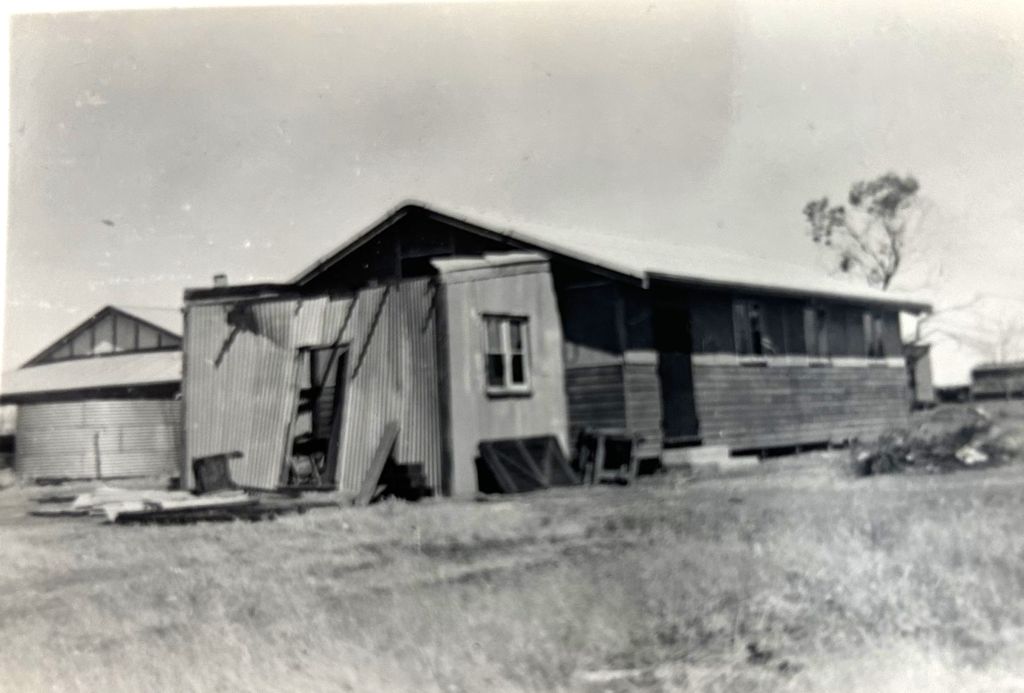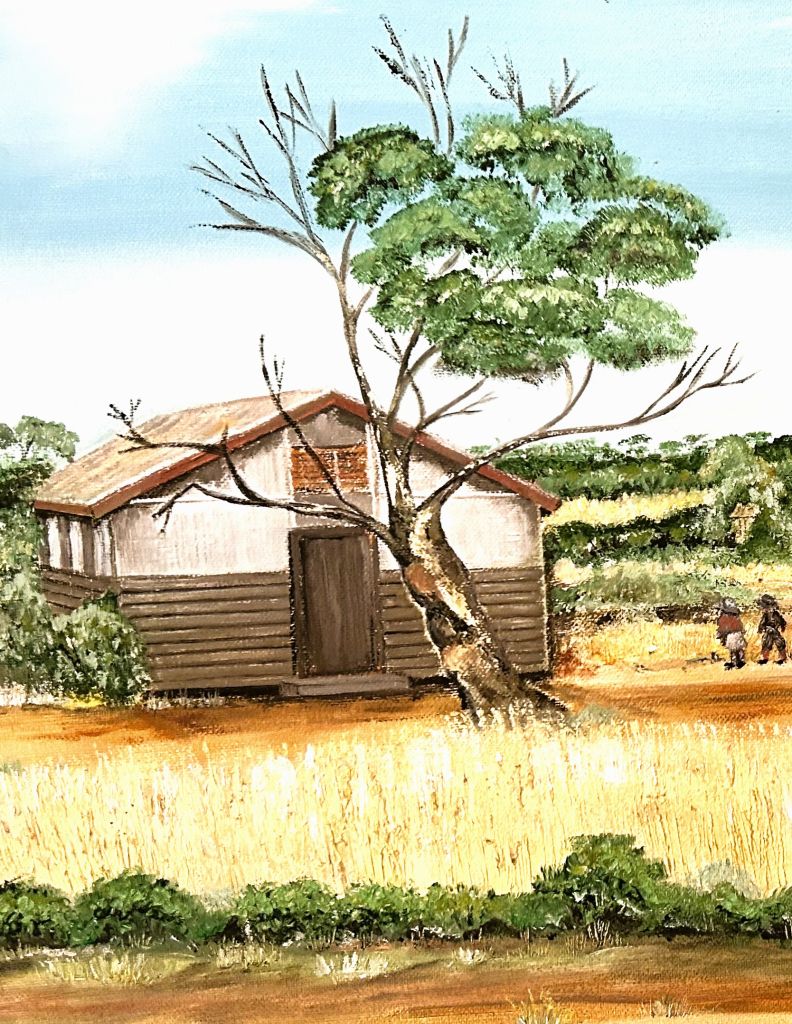
Tenindewa Notes
Greenough Sun (December 24th 1947)
The scene at Tenindewa on Saturday, December 20, will long live in the memory of those fortunate to be present.
The district, always noted for its hospitality, surpassed all previous records in this respect. Although it was termed the Annual Christmas Tree, which has been an unbroken sequence since since 1913, it was something more than that. It was really the unofficial opening of the new hall, which was taken down at the Geraldton Aerodrome and erected on its present site almost entirely by co-operative voluntary effort. This surely, is an example of what can be done through a social scene including the loyalty of settlers in their own district.
A sit down was provided to all by a willing bunch of lady helpers. A touch of harmony, combined with humour, was lent to the party by the decorated paper hats. Much laughter was invoked by the shape and feather decorations on them especially when placed on odd angles on bald heads. The arrival of Santa Claus was the cause of much rejoicing and cheering, and judging by the facetious remarks made by Father Christmas, one gleaned he had made many visits to this settlement. The Tree was tastefully decorated with tinsel and toys, and sixty seven children received a present and a bag of lollies. As there must have been two hundred adults in the hall, Santa Claus had some trouble interviewing his patrons. However all good things must come to an end, so to the cheering of all he departed on his way.
The children were then given the floor to play and dance, which they did willingly. In the break between their party and the adults dance, a presentation was made to Mr. Fletcher Waldeck, the school bus contractor, who obviously was deeply moved by this fine gesture on the part of the children.
Dancing to music of a gramophone amplifier was indulged to the “wee hours”.
The success of the evening by the following: Mesdames Butler, Olman, Brenkley, Eves, Wells, J. Obrien, Cherico, Davis, G. Rumble, Reay, McCarley and George, Messers. Butler and Sons, Smith G. Rumble, Cherico, Foster and others
To see more on the Christmas trees please click on 100 years of the Tenindewa Christmas Tree, The Foster Years
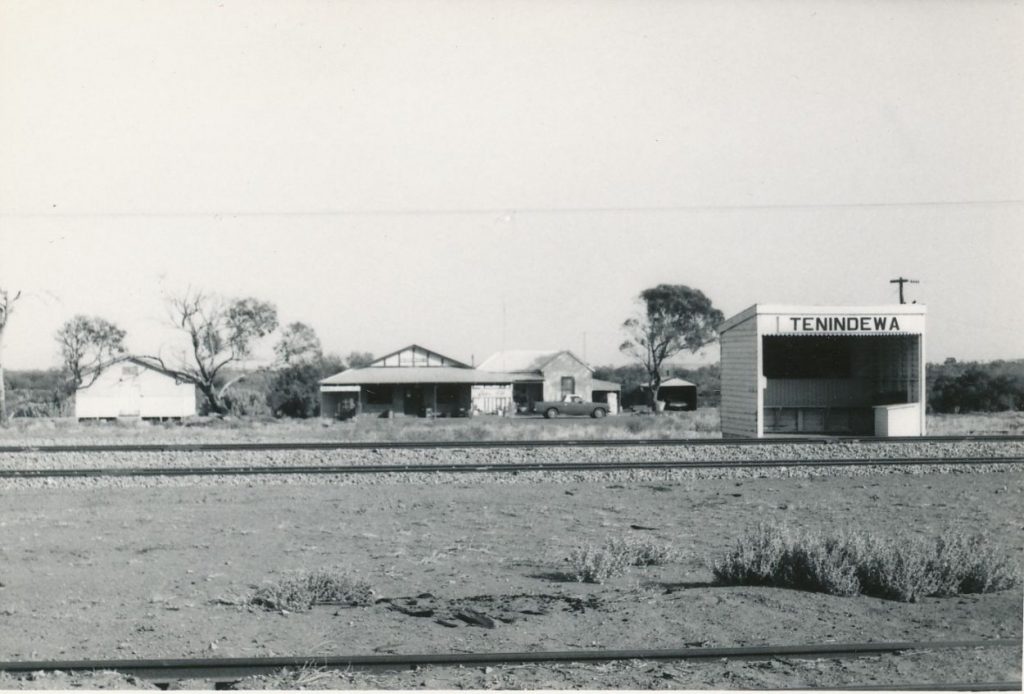
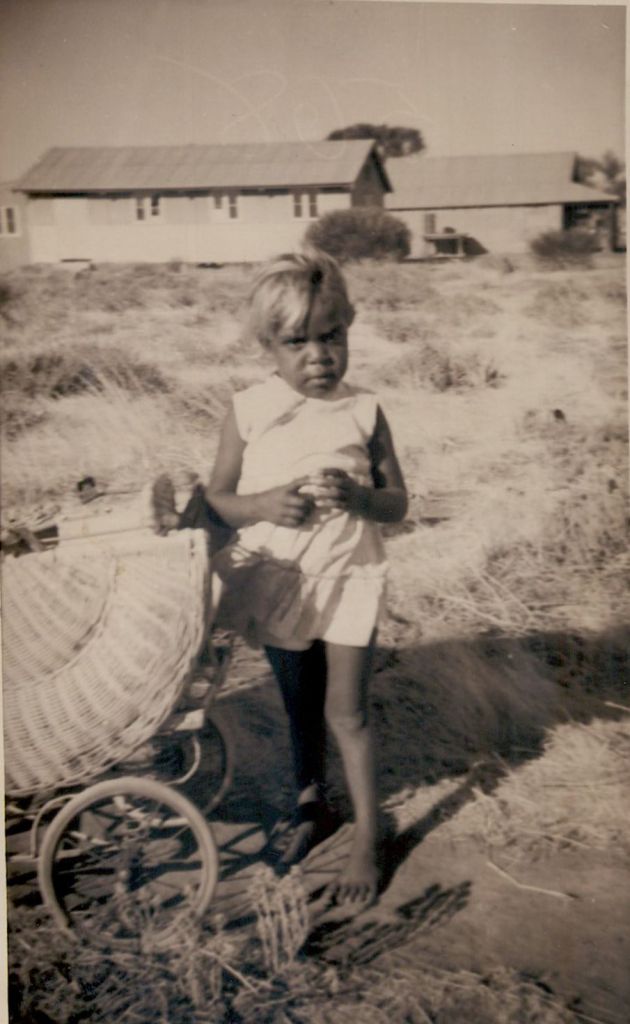
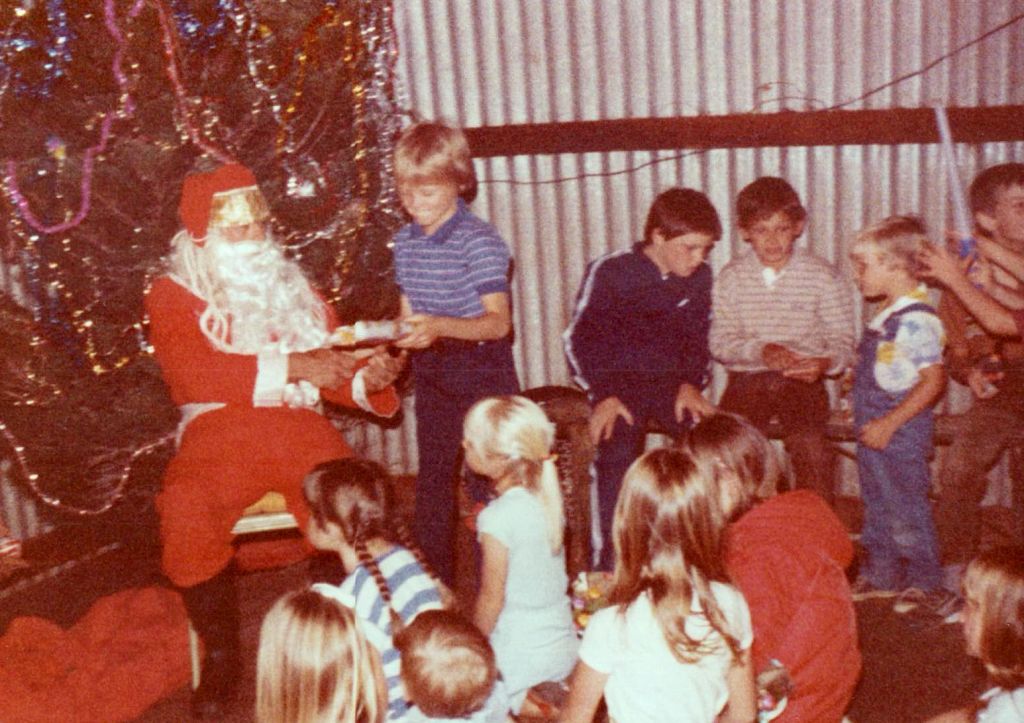
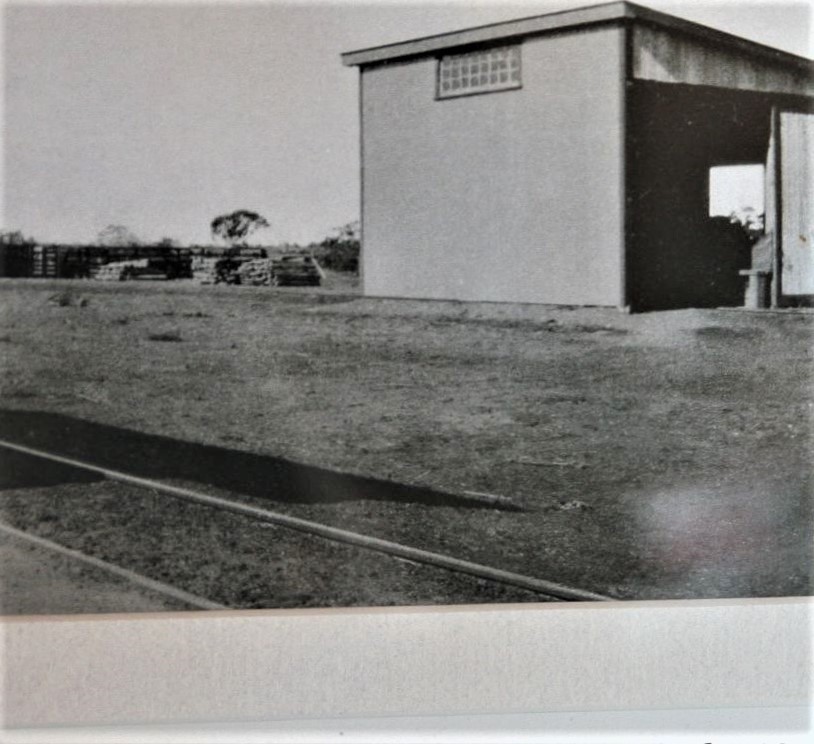
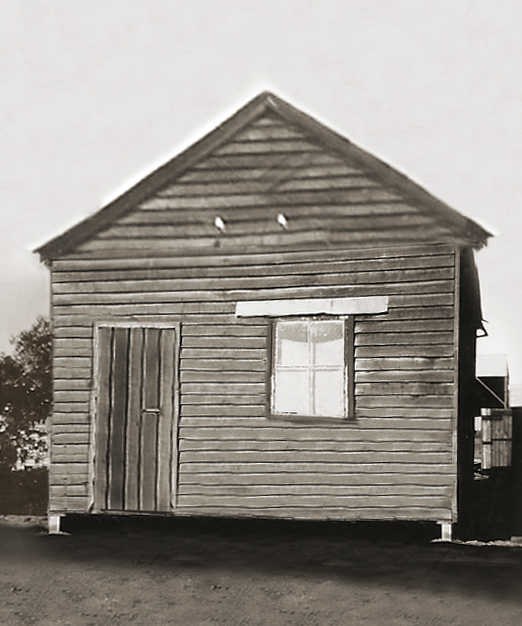

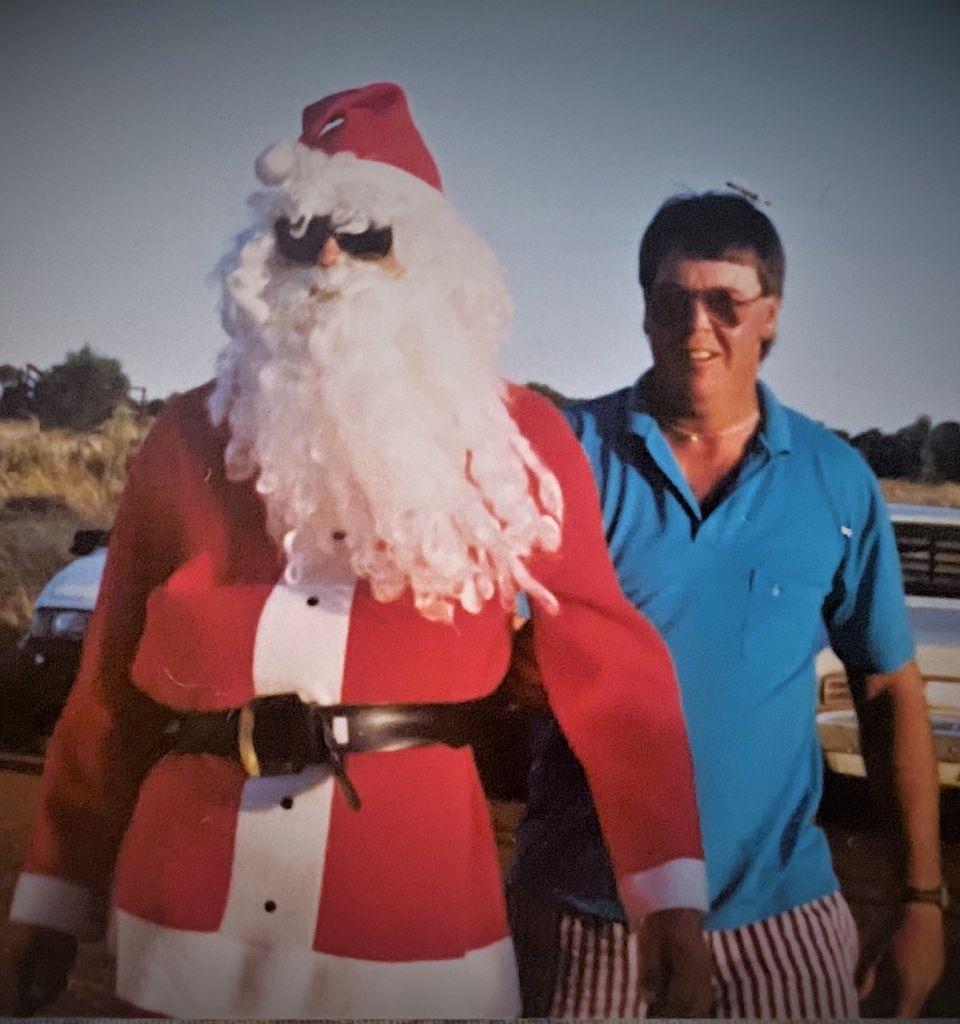
Related Articles
June 29th 1922
Tenindewa Notes (From our own Correspondent)
The Tenindewa Cooperative Store is being would up–not enough cockies to keep it going. The building used by the Co-op has been sold to the Sports Club, who intend removing it to a townsite from Mr. Petroff’s place [over the road]. The building is a fair size and gives young people a good place to amuse themselves at dancing and other games……mostly other games (See entry June 1926 below)
Farmers have finished seeding, or nearly so. The season so far has been a bad one, the ground being too hard at the start from want of rain. Most crops are up but there has been little growth and far too many frosts. Feed is scarce although stock look fairly well, especially cattle that can reach the good top feed.
June 1st 1926
Tenindewa Notes (From our own Correspondent
There is a very large area of wheat around here seeded this year, and nearly all have finished, there being just a few stragglers to wind up
The rains have been good and feed is plentiful; stock are improving fast. If the season keeps on as it is then a bumper harvest (discounting rust) should be the result.
Mr. Palmer, (sen) is home again but is still unwell. His trip to Perth evidently has not benefitted him much.
Mr. H Johnson has been in Mullewa Hospital with pneumonia, but thanks to his robust nature he is about again and hard at work.
Farmers generally are pleased at the result of the Council election, but would rather have had “Old Joe” in power and many think and say Mr. Joe Mills should contest the Greenough seat against Labour.
Tractors are still arriving in this part and every cocky has a motor car and not just a “tin lizzie” either.
Personally, I would have a “lizzie'” every time, if only to support a wonder man like Henry Ford. If more industries would adopt his methods the great revolution would perhaps be staved off. Capital and Labour cannot agree under present methods, even the farmers are adopting “slight co-op” methods. It is a common practice now for farmers to give their employees an area to crop and a portion of the crop.
I know a farmer around here (an oldish man too) who should be sent to the Olympic sports as a jumper. The other day he was standing along side a cow bailed up ready to milk, when another cow objected to his presence and charged him, and he was in such a hurry to get away that he cleared cow and fence in a standing jump. Its wonderful what a man can do if the matter is urgent.
Mrs. Stafford is on a visit here to her son in law (Mr. R. Dunkin)
The hall recently used for dances etc, has been sold and removed much to the regret of the young people.

